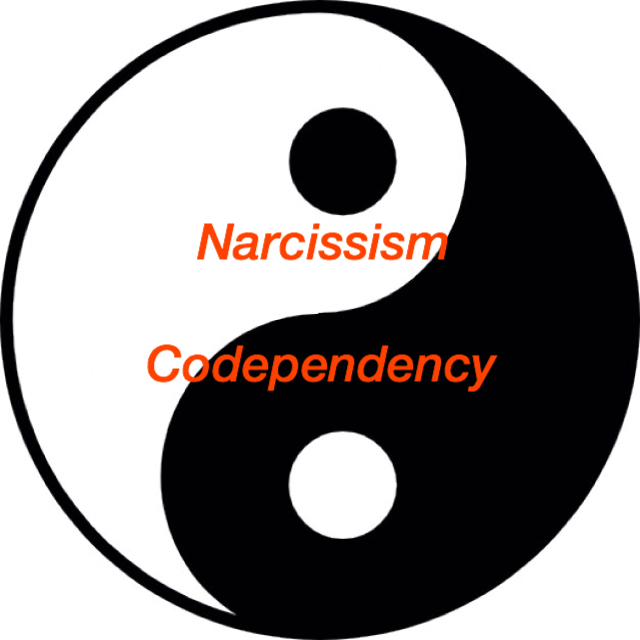Lately the world is abuzz with talk of narcissism. Politics aside, sometimes I see this in the therapy room. It is more subtle than you might expect. These behaviors are not as black and white as this yin/yang symbol. Indeed, this set of emotional behaviors is more like 50 shades of gray! Why? Because it is often difficult for a partner to pin down why they are the ones feeling exhausted and depressed when dealing with a narcissist. Is it Oz? The comparison of Oz as the epitome of the narcissist is used by Eleanor D. Payson in her book The Wizard of Oz And Other Narcissists. She sees the wizard from the movie The Wizard of Oz as a glowing example of narcissism, and Dorothy as the “codependent” who repeatedly and desperately tries many ways to please him in her goal of getting back home. In this classic example, both parties fit together in a yin and yang manner, perpetuating this painful dance.

I think we might consider her journey to get back home as the journey to come back to her true self. She does this when she realizes via her ruby red slippers she had the power all along to achieve her goal. But I can assure you that in real life all is not so neat and tidy!
Random Signs of Narcissism
A few random, but striking, signs (this list is not all inclusive) that you are in the room with someone who has narcissistic traits:
- Of course, the continual tendency to bring the spotlight back to themselves is present; it’s an unconscious skill.
- They feel brittle and rigid in their defense mode, which is easily sparked. Argument/debate comes naturally to them.
- They truly do not see their own lack of empathy, the heart of narcissism.
- Lots of blaming the partner for their own insecurities takes place. This looks like projection: “Well, you brought it up!” This may come from a place of unconsciously viewing the self as inadequate.
- Many times they report they had a “Leave It To Beaver” kind of childhood. All roses and kittens and mama-in-the- kitchen, so the problem must be you.
- Less visible is the horrible underlying sense of anxiety they feel, disguised by the need to be right. This is a relationship killer for sure, and goes back to the sense of inadequacy that underlies it all.
- The most insidious trait of all is the (again unconscious, but highly developed) skill of placing you in a double bind. A double bind is when two messages are communicated at the same time, but mean the opposite of each other. The narcissist can verbally communicate one thing while subtly non-verbally expressing another. You get set up to fail, because success in one automatically means failure in the other. An example of this might be one partner complaining that the other does not express their true feelings enough, yet when they do, they are criticized or ridiculed–or even mocked–when they do.
All of this means it is tough to maintain your own sense of self esteem and confidence while in a relationship with a person who demonstrates these tendencies. Often the result is feeling exhausted with the effort it takes, yet not quite understanding why you feel this way.
And often the relationship may exist in a the yin and yang world of codependence and narcissism, holding the two perfectly together in a dance of anguish. If these signs ring true for you, there is help.
First you will learn to strengthen your recognition of the behaviors used by the narcissist. Only then you can develop the skills necessary to hold healthy boundaries with them. Both are critical to your mental health. This takes practice! And I will encourage and support you in your journey.
Shoot me an email if you want to talk about it. I get how hard this can be.
Resources: Eleanor D. Payson: The Wizard of Oz And Other Narcissists.
Narcissistic Personality Disorder: More information










